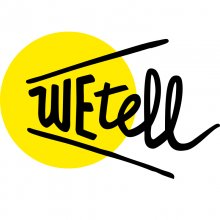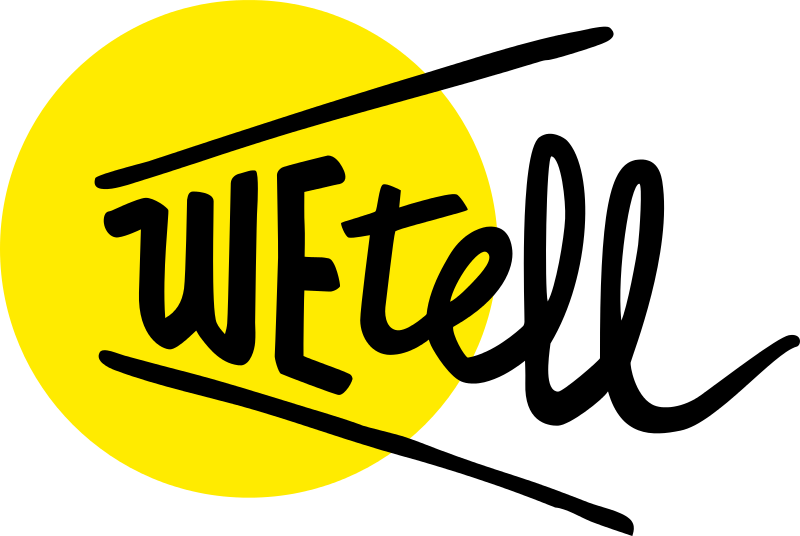Alma Spribille studied industrial engineering and after working in the fields of renewable energies and climate impact research, has been a solar energy systems researcher at the Freiburg Fraunhofer Institute since 2009.
She met the other members of her team, Andreas Schmucker und Nico Tucher through Engineers without Borders, where all of them were volunteering for international development projects. After discovering they made a good team, they set out to develop a project together: WEtell.
Andreas had already made a few changes to his own life: started making conscious decisions about what to buy, switched to green energy and an ethical bank. But when it came to his mobile phone, there didn’t seem to be any sustainable alternatives. So Alma, Nico and Andreas decided to do something about it themselves.
We talked to Alma about WEtell’s mission.
Alma, I did a bit of research and found out that there are more telephones in Germany than people…
Yes, there are 80 million people, but 130 million mobile phone accounts in Germany – it’s crazy. If you look at the total energy consumption of mobiles, about 40 percent of that goes into the production of your mobile phone and charging it each day. In Germany, the other 60 per cent is used up by the network infrastructure – mobile masts, all those energy-intensive data servers and the construction and expansion of the infrastructure that of course also uses up resources… But we couldn’t find any mobile phone companies that offered a sustainable alternative
The three main providers in Germany are very well established. How do you plan to compete?
We have defined three unique selling propositions. We are climate positive, data secure, transparent and fair. In other words, if you make mobile phone calls with us, you don’t harm the climate – you actually help it.
How?
Together with EWS (Elektrizitätswerke Schönau, a supplier of green electricity in Germany) we’re building new renewable energy plants in Germany that produce more electricity than our users ultimately consume. That makes our balance sheet climate-neutral.
So you’re offsetting emissions?
Ultimately, yes – but in the most effective way possible. We’ll be feeding the green energy from our plants into the grid as grey energy in order to replace real grey energy like that produced by coal or other conventional energy sources. In that way, it’s as if the mobile masts were powered by green electricity. We don’t aim to earn any money with these systems. We want to transfer the surplus and ownership of the systems to a foundation whose sole purpose will be to build new renewable energy systems in Germany.
We ourselves of course use green electricity, and we try to have the biggest impact we can by only working with partner companies that either already use green electricity or switch to it because of us. We already have a concrete commitment from our grid connector too, who is providing us with the interface to the D1 network. It has a great knock-on effect.
You also want to be more sustainable than other providers when it comes to data security.
Exactly, that’s very important to us. All mobile providers currently store user data for as long as possible and they analyse it. They do it anonymously, but in part it’s for advertising purposes. They know who you called and when, where and for how long. They know where you live, where you move around, where you go for coffee, where your gym is and which websites you have been on for how long. Who you wrote to and how many messages you wrote…
How could you do things differently – ensuring better data privacy?
We can ensure that all the data you have stored with us and linked to your name is deleted as soon as you agree with your bill. Pretty much all other mobile providers share data with third parties for processing purposes and that kind of thing. And at least O2 also sells anonymised data on, meaning it earns money from that too. We don’t think that’s okay! You pay us for a service – that’s the only thing we will earn money with.
When you make a phone call with WEtell, the network operator only receives the data that it needs, i.e. your telephone number and your SIM card number. He does not have the link between your name and your number. We do, but we can delete all usage data as soon as you have accepted your bill. We would be the only provider in Germany to do that.
And your third USP?
We try to present everything we do as fairly and transparently as possible. Our tariffs are easy to understand, you can cancel all of them by the end of the month, there is no minimum contract period and no hidden costs.
How are you financing your project?
 © WEtell The WEtell logo
© WEtell The WEtell logoWe don’t have any money at all right now – we’re all putting heart and soul into the project alongside our other jobs. We are launching a crowdfunding campaign on Startnext on February 15th – our goal is for at least 1000 people to pre-purchase our contracts, that vary in length from 6 to 12 or 24 months. The contract is in the form of a voucher which stays valid for two years. So you don’t have to redeem it right away, meaning that people who are still stuck in contracts can switch to us at a later date. With the cheapest tariff of 15 euros, our minimum target is 90,000 euro. If we manage to achieve that, we’ll be able to get a loan from the GLS bank which we can use to organise the IT infrastructure, the legal advice for the contracts, all of the certification costs, office rent, marketing and customer service – and a wage for ourselves of course.
How many people do you think you’ll be able to reach? Your target group must be prepared to pay more than your (non-sustainable) competitors, of course…
We’ve looked at companies that do similar things to what we are planning to do – and that are successful. Posteo, for example, has 300,000 customers. And I would say that our target group also includes all people who have a green electricity supplier – they have about one million customers altogether.
And when it comes to the higher price… polluting the environment isn’t free. As consumers we’re often unaware of the effects of our consumption and the cost that it really has – that impact is not included in the price, meaning we’re not able to make the right decisions. Including the price of environmental damage – air pollution for example – into the final price of the product, would be an interesting option.
How much of an impact will you be able to have?
Sustainability just hasn’t played a role in the mobile communication market yet – unlike the energy market, for example. But we see this as an opportunity too – it’s still possible to make a real change. People have to know that sustainable alternatives exist first. If the mobile phone market were to become a little more diverse, with different options available, then people would be able to decide what they wanted, and what is really important to them.
If you became a sort of pioneer for new sustainable standards and others followed your lead, it might mean that you wouldn’t be able to hold your own against the competition. Would you still be happy with that?
If, five years from now, Telekom were to implement our own strategy, that would be the greatest possible success we could hope for – then the others would have to follow our lead! Of course, from an entrepreneurial perspective, we’d hope that they recognise that we were the ones who inspired the change and remain loyal customers. But to be honest, if that happens, we’d genuinely be ecstatic.
This is a translation by Marisa Pettit of an original interview which first appeared on RESET’s German-language site.
Addition from 23.01.2019: Unlike Germany, Austria already has a network operator with a certified CO2 neutral network. The mobile phone provider goood, who we interviewed back in 2016, has been offering this tariff since October 2017. (Interview in German)






